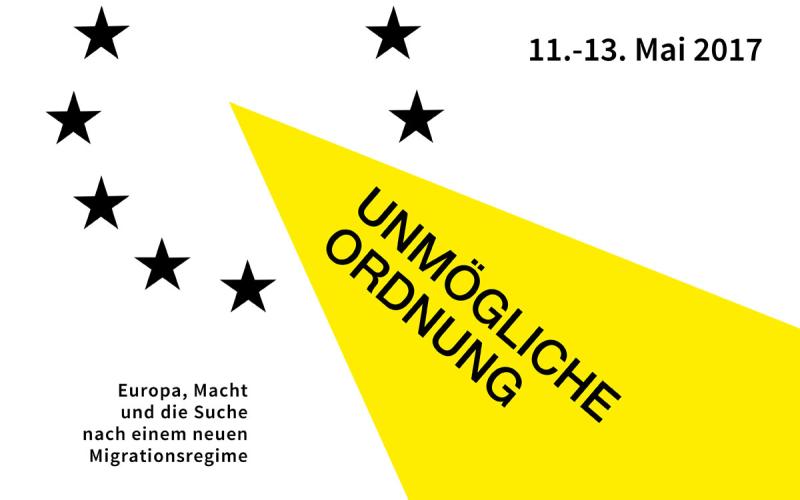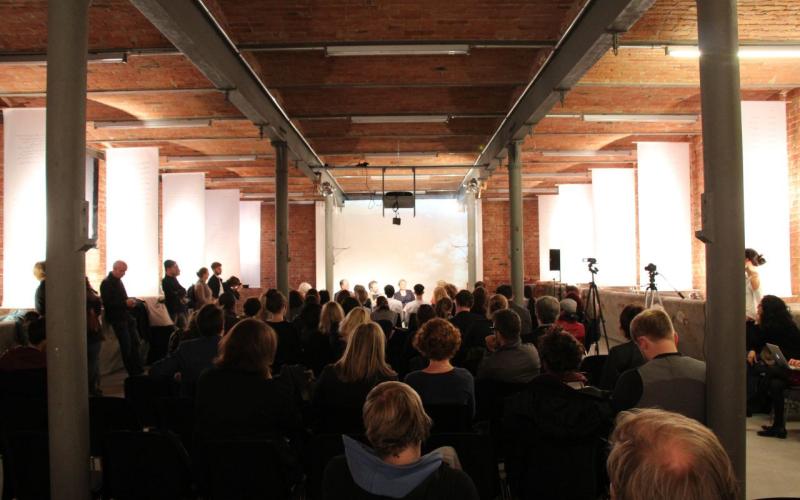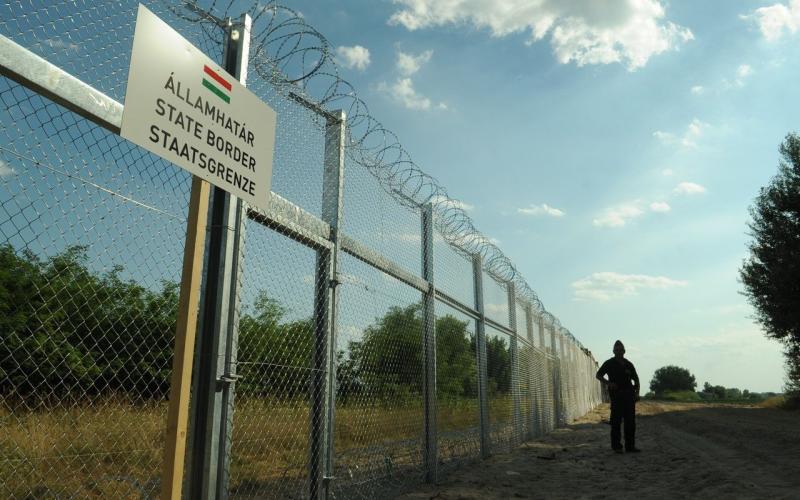Panel II focused on the “Institutional Change” regarding European migration. Unfortunately, Anne Koch and Maxi Obexer had to cancel their participation on short notice. Hence, the Italian sociologists Martina Cvajner and Guiseppe Sciortino were the only contributors to the shortened panel. They introduced the generally convincing symbolization of the European migration regime as a Gentle Monster.
In their talk Martina Cvajner and Giuseppe Sciortino reflected on “How Migration Changes European Institutions (and vice versa)” and presented their analytical access to the European migration regime. Initially, they posited that in the perception of important social groups migration policy never works – either politicians, citizens or migrants are dissatisfied. However, from the perspective of the two researchers this does not pose a problem. They suggested that a „somewhat liberal state“ (as an entirely liberal remains an ideological image) relies on contention and negotiation.
The two sociologists argued that the left-liberal icon of the Fortress Europe is a partial, incomplete concept because it leaves out the fact that many migrants receive short-term Schengen visas while others use those to overstay without drastic penalization. As a more appropriate concept to describe the European migration regime they suggest the Gentle Monster. First signs of its appearance can be found in the times of the labor recruitment treaties in the 1950s and 60s when migrants were very welcome to many European states but only as a labor force while their social integration remained unwanted.
The first clear evidence of the Gentle Monster is the political debate on the 155 Tamil refugees, reaching Western Germany through GDR in August 1986. They were granted asylum but only with much discursive indignation. After that the Gentle Monster sojourned in the background, but with the fall of the Berlin Wall European politicians unveiled it. They started to plan a more restrictive asylum policy with pervasive effects: On an internal level, certain European countries pursued a beggar-thy-neighbour policy. More prosperous countries tried to drain neighboring countries economically, likewise they blamed migrants from the neighboring states for weakening their homelands and straining the labor market of the more prosperous countries. On an external level, the numbers of non-European long-term “irregular” residents has been reduced by deportation while the remaining persons are forced to live with uncertain residence statuses. Some of them can neither be returned nor “legalized”, others live in the orbit of the European Gentle Monster, waiting for their possibility to enter.
These recent concepts were first introduced and applied in the 1990s. Today the closing of the external borders is a core element of the EU-Turkey Refugee Agreement from March 2016. On the one hand, the European Union, especially Sweden, Austria and Germany, gave shelter to many refugees, on the other hand, the deal with the Turkish president Recep Tayyip Erdoğan intended to radically close any access to Europe for many migrants. The Gentle Monster still is vivid.
The discussion after the talk started with a question about the early 2000s and the formation process of the European border regime at that time. The speakers emphasized that this formation process was hindered by practical issues, like implementing complex new technologies like Eurodac. Further, a question was raised whether refugees who arrived in Central Europe since 2015 would also talk about the European Union as a Gentle Monster from their perspective. As an answer, the speakers first pointed at the fact that refugees are not given noteworthy benefits in Italy, but since these are given in Germany they proposed a research on that in Germany. This spoke to an issue constantly raised at the conference, the increasing need for comparative studies beyond national specifics. During this debate listeners suggested to also consider the “European Union as a gated community“. Sciortino asserted that the term “gated community” exclusively protected wealth while, unlike the EU, it does not claim to be good which, as he recalled, is central to the concept of the Gentle Monster. To this another discussand added other factors, mainly that the term “gated community” cannot only be associated with wealth but also questions of race and ethnicity.
Martina Cvajner and Giuseppe Sciortino explained their description of the European migration regime as a Gentle Monster analytically and extensively. Their's was a controversial stance at the conference. In the following panel, for instance, Marcel Berlinghoff, characterized the European migration policy as more liberal. However, Cvajner and Sciortino thought beyond the imaginary of the Fortress Europe and introduced an alternative metaphor for the European migration regime in its past and present.
Zitation
Ellen Höhne, Alex Konrad, Institutional Change . Panel II , in: zeitgeschichte|online, , URL: https://zeitgeschichte-online.de/themen/institutional-change



